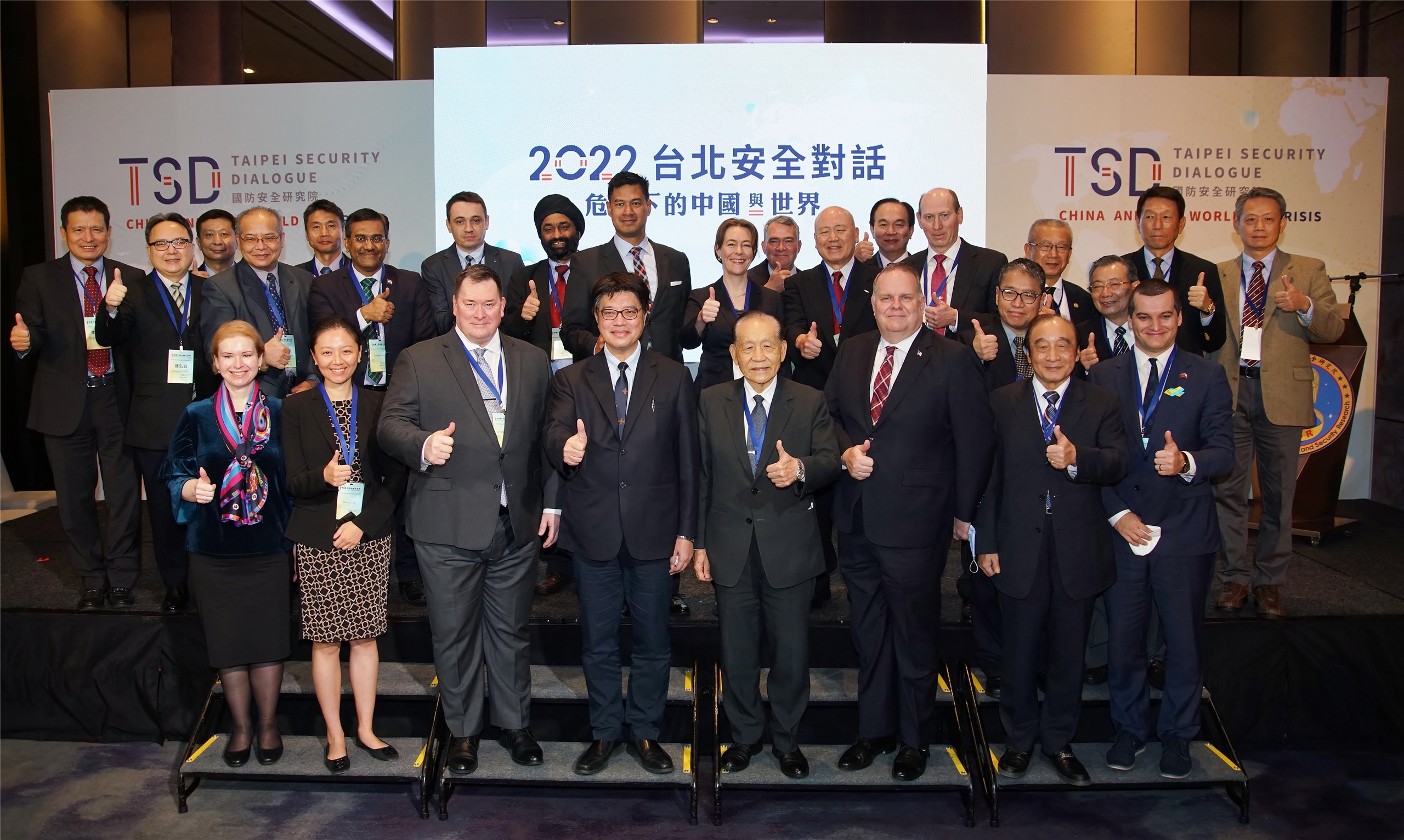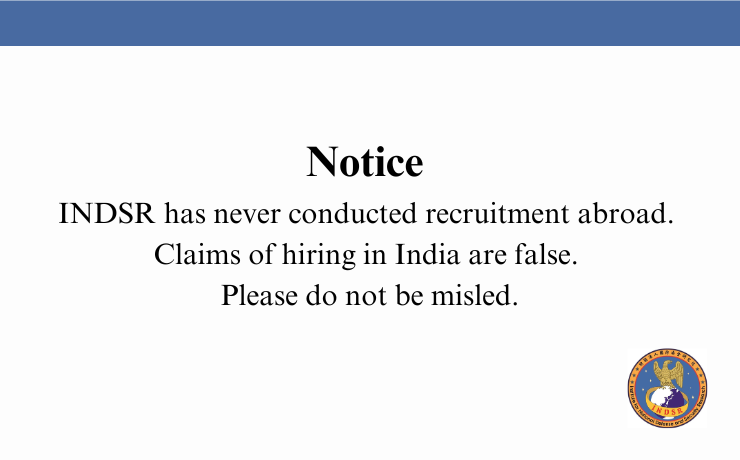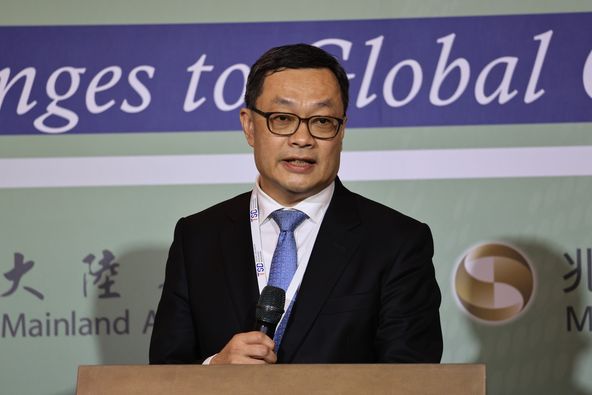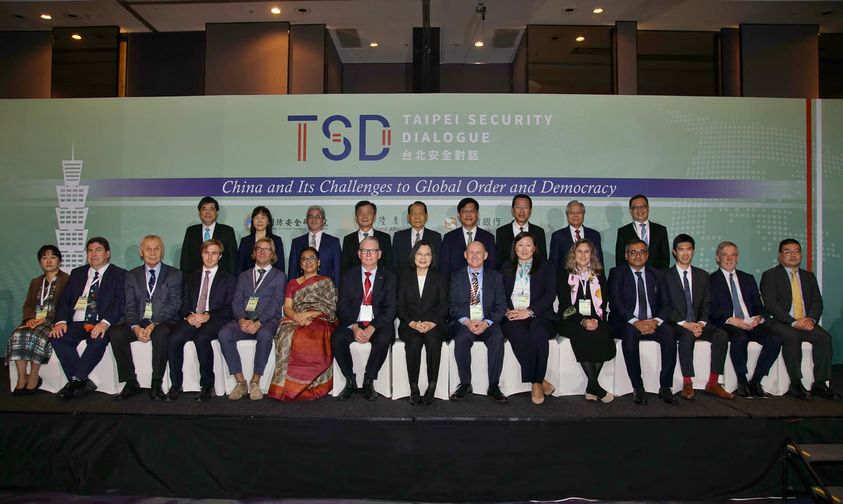On the morning of November 3, President Tsai Ing-wen met with participants in the 2022 Taipei Security Dialogue, hosted by the Institute for National Defense and Security Research (INDSR). President Tsai said that INDSR was founded four years ago as a national-level defense think tank to give us a more comprehensive grasp of changes in the strategic landscape and to strengthen dialogue, cooperation, and exchanges between Taiwan and other countries in the region. Nothing that the Taipei Security Dialogue is a key program in efforts by INDSR to advance international exchanges, President Tsai welcomed the participants to deepen cooperation with INDSR and Taiwan's other think tanks, and said she looks forward to further such exchanges in the future.
In remarks on behalf of the visiting international participants in the 2022 Taipei Security Dialogue, former US Deputy Assistant Secretary of Defense for East Asia Heino Klinck said that while the participants come from different countries, they are all friends of Taiwan and support what it stands for. He stated that Taiwan remains a paradigm and beacon of freedom. There has been a realization across the Indo-Pacific region and the globe that the so-called "great rejuvenation of the Chinese nation" equates to an imposition of the CCP's national security, economic, and development interests on other countries. The juxtaposition of democratic Taiwan with autocratic China could not be more stark.
2022 Taipei Security Dialogue contained two sections: Conversations and Panel Discussions. In both sections, our speakers shared their perspectives, enlightening the audience with their valuable insights. For example, prominent Japanese professor Yusuke ANAMI stated that Japan is currently facing a ”China conundrum,” as China clearly shows little respect of the world order and universal values; hence, Japan should be prepared for potential conflict with China in the future.
The Swedish expert Mr. Mats Engman expressed his belief that China intends to divide Europe and the U.S., but the crisis in Ukraine unified the members of the European Union, making the EU and the U.S. more unified in their positions. He perceives a possible dominance transition among EU members, with France and Germany possibly gradually decreasing their influences in the EU, while Eastern European countries and the Baltic states increasing theirs.
Dr. Wu, Tzuli, the Associate Research Fellow of INDSR, pointed out that under the asymmetric circumstance, Taiwan’s defense strategy must emphasize more on regional integration rather than relying solely on military force. Taiwan should try to influence enemy’s thoughts and interests; military power matters, but is not the only factor that affects the Chinese regime. Dr. Wu suggested that we could concentrate on building the denial capability, rather than just anticipate the deterrence strategy will work.
The Indian expert Sameer PATIL said that the establishment of the PLA Strategic Support Force in 2015 during the military reforms gave PLA an advantage in regional competition. China enjoyed the “first-mover advantage”: while no agencies could arbitrate the internet hostility, China could gain considerable success in this new area. He even stated that according to the current development, hackers and internet KOLs could also act as starting points that launch the false information attacks.
Dr. Yurii Poita, a Ukrainian and the head of the Asia-Pacific Section of the Center for Army, Conversion and Disarmament Studies, also shared his firsthand experiences in the battlefield. He stressed that the territorial defense forces effectively impeded Russia’s aggression, and in the battles in Kyiv and Bucha the Ukrainians fought ferociously, and successfully defended their territories. Based on his observation, Dr. Poita argued that sufficient training and thorough logistics support that complement the already thorough reserve force capability would greatly enhance the Ukrainian military and increase the likelihood of successful defense.
After a one-day intense participation in the conference, and a consecutive two-day visit to the Presidential Office, MOFA, and MAC, our guests finally had time to visit our institute. The hundred-year-old historic monument with the exterior of red bricks and white columns, in addition to the scholarly works of Taiwan’s top national defense think tank, all left a deep impression on these international scholars. We anticipate that we could increase cooperation with more scholars, experts and friends from all over the world, so that together we could devote more in promoting regional stability and Indo-Pacific security.




